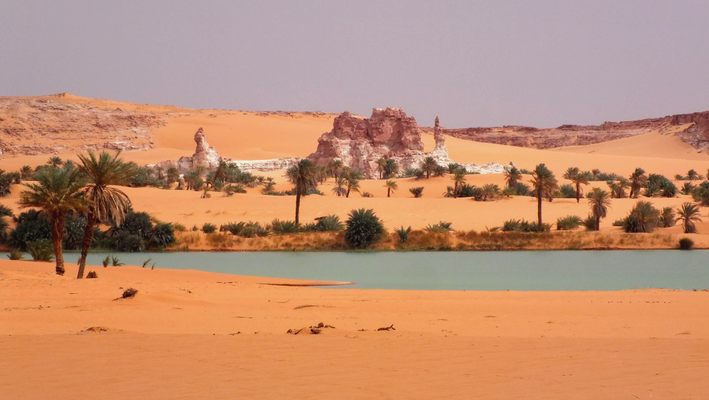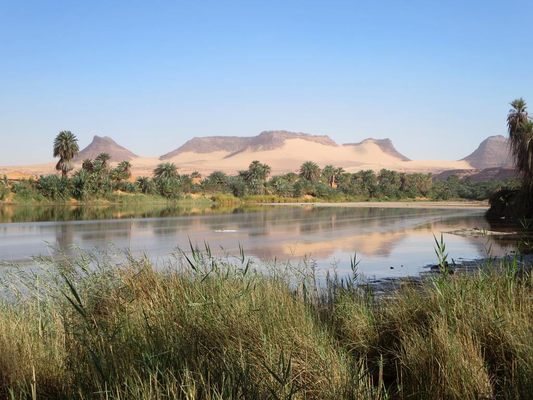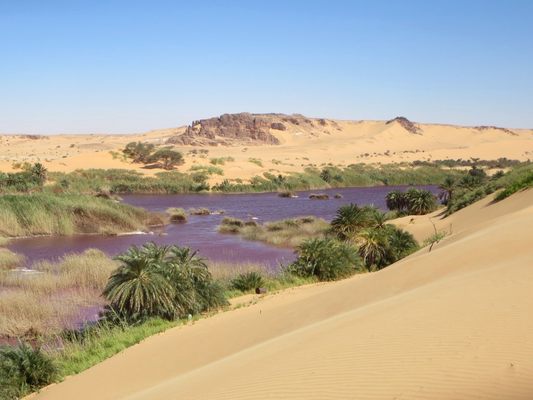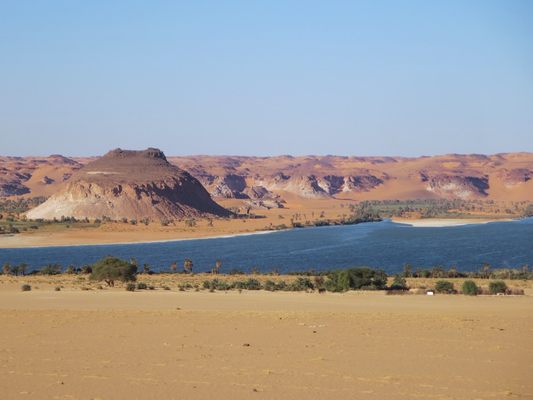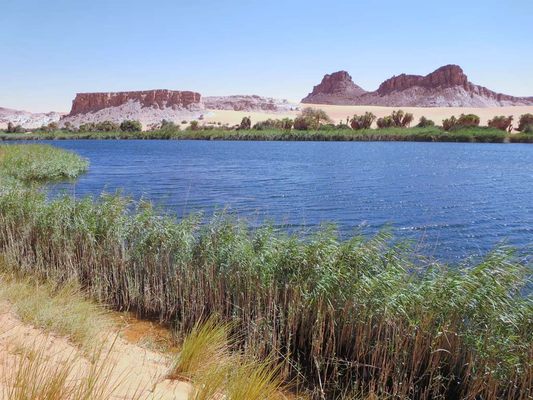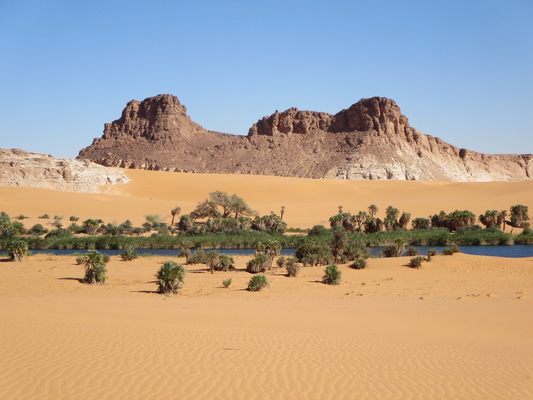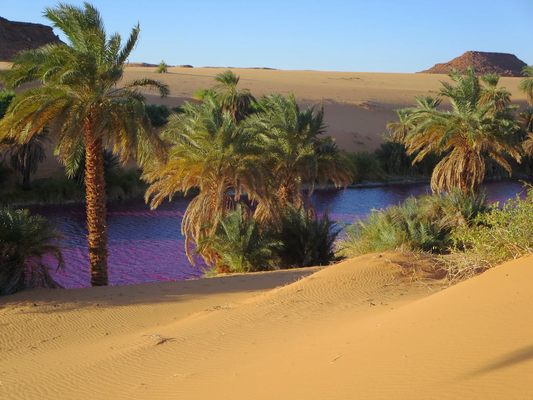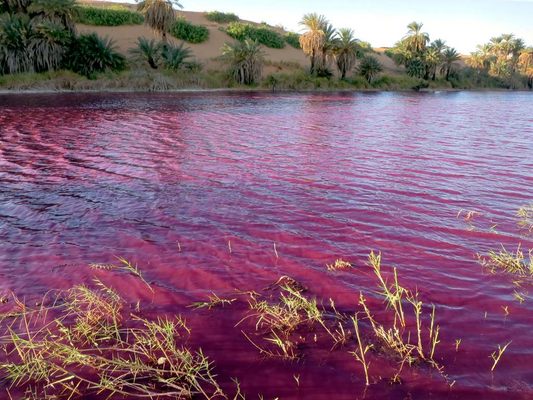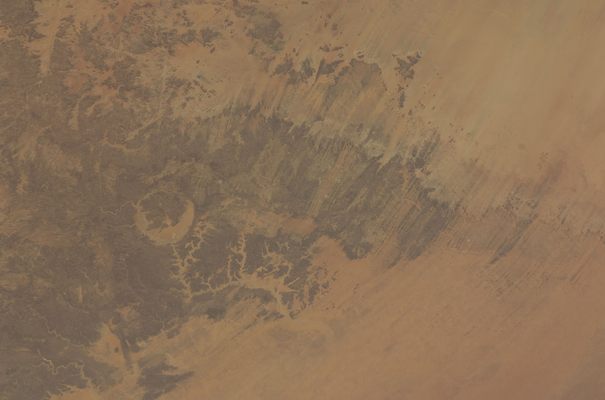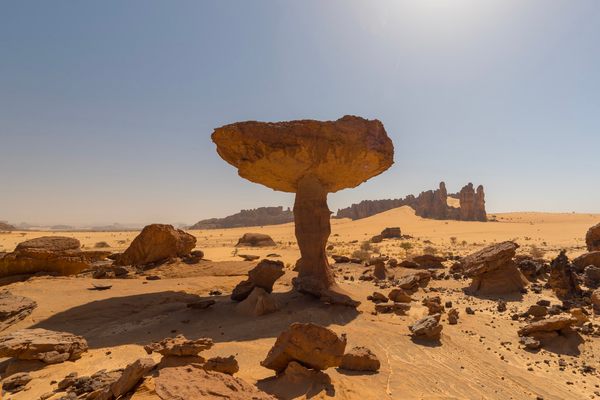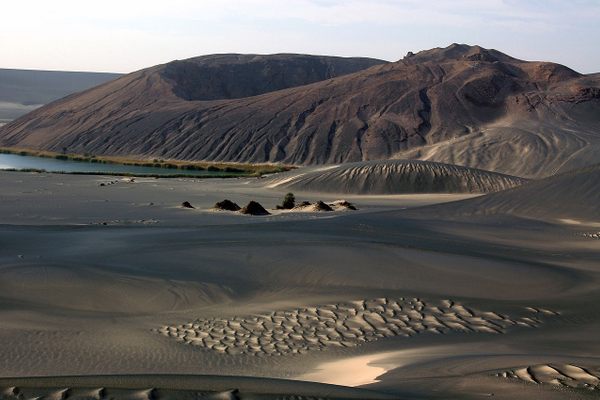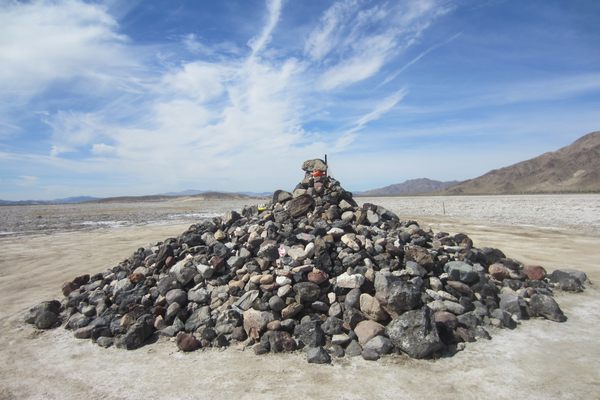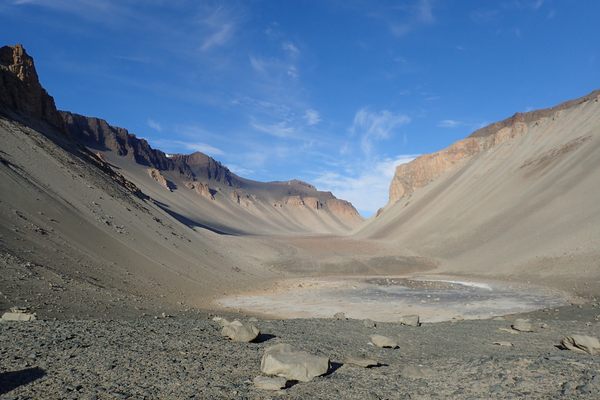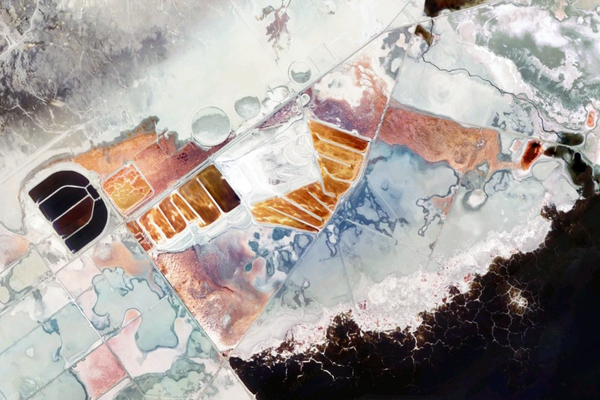About
Eighteen lakes snake through the arid Ennedi region of Chad to form a breathtaking oasis in the middle of the Sahara Desert. Collectively they are known as the Desert Lakes of Ouianga, which make up the world’s largest permanent freshwater lake system in a desert environment.
The first sketches of these lakes date back to 1913, when French colonizers launched a geographic mapping exercise of northern Chad. The exceptional flora and fauna that flourish here are rare, partly due to reduced evaporation of the water thanks to varying mineral composition and clusters of floating reeds. About 10,000 years ago, these lakes made up a singular water basin. That geological history contributes to the unique hydrological system that sustains the lakes in an arid climate that sees less than two millimeters of rain each year.
This contained lake system is located in the Ennedi region of the Sahara, home to a nearby plateau called the Ennedi Massif. Here, striking sandstone arches and other freestanding structures tower over canyons and plains, alongside ancient caves. Human occupation of this desert region dates back to the Neolithic period, evidenced by archeological sites and ancient artwork. The Ennedi Massif was once a primordial ocean that covered part of what is now the Sahara Desert and dried up between 350 and 500 million years ago. Erosion by water, sand, and wind has sculpted canyons and valleys in the arid plateau that is roughly the size of Switzerland.
Gorges and rock labyrinths are still home to small streams that have provided resources for generations of communities living in Ennedi Massif. Ancient petroglyphs dating back 7,000 years show the evolution of the land’s topography and animal life through paint and engravings. Around 30,000 semi-nomadic people now live within the Ennedi reserve’s borders, grazing livestock in oasis areas and continuing to steward the land their forebears relied on.
Related Tags
Know Before You Go
Visitors to Ennedi Massif and the Desert Lakes of Ouianga should anticipate booking a guided tour, due to harsh desert conditions. Tourism is not yet fully developed in Chad, so email tourismrnce@africanparks.org for details on visiting the Ennedi reserve.
Community Contributors
Added By
Published
April 7, 2022
